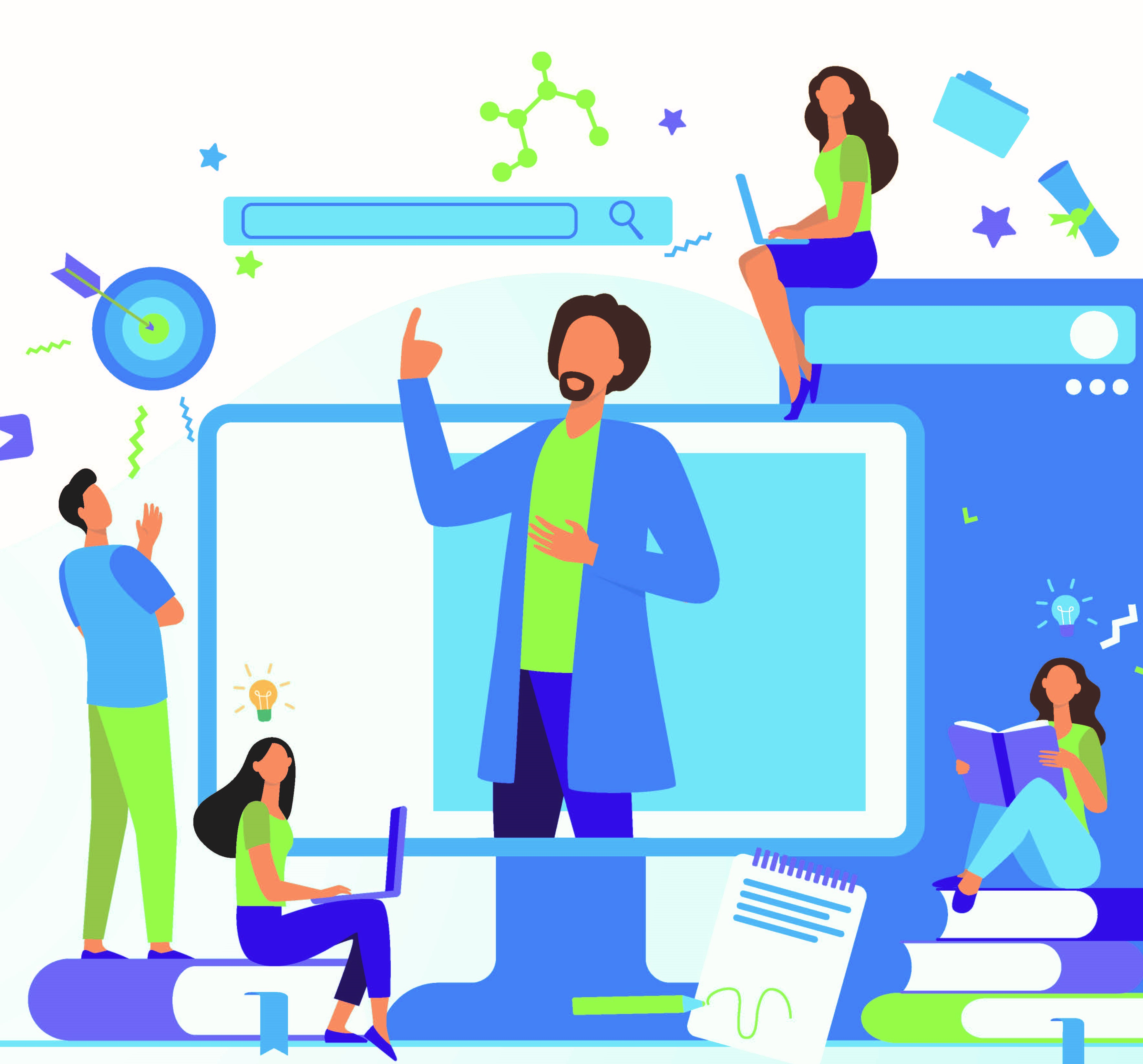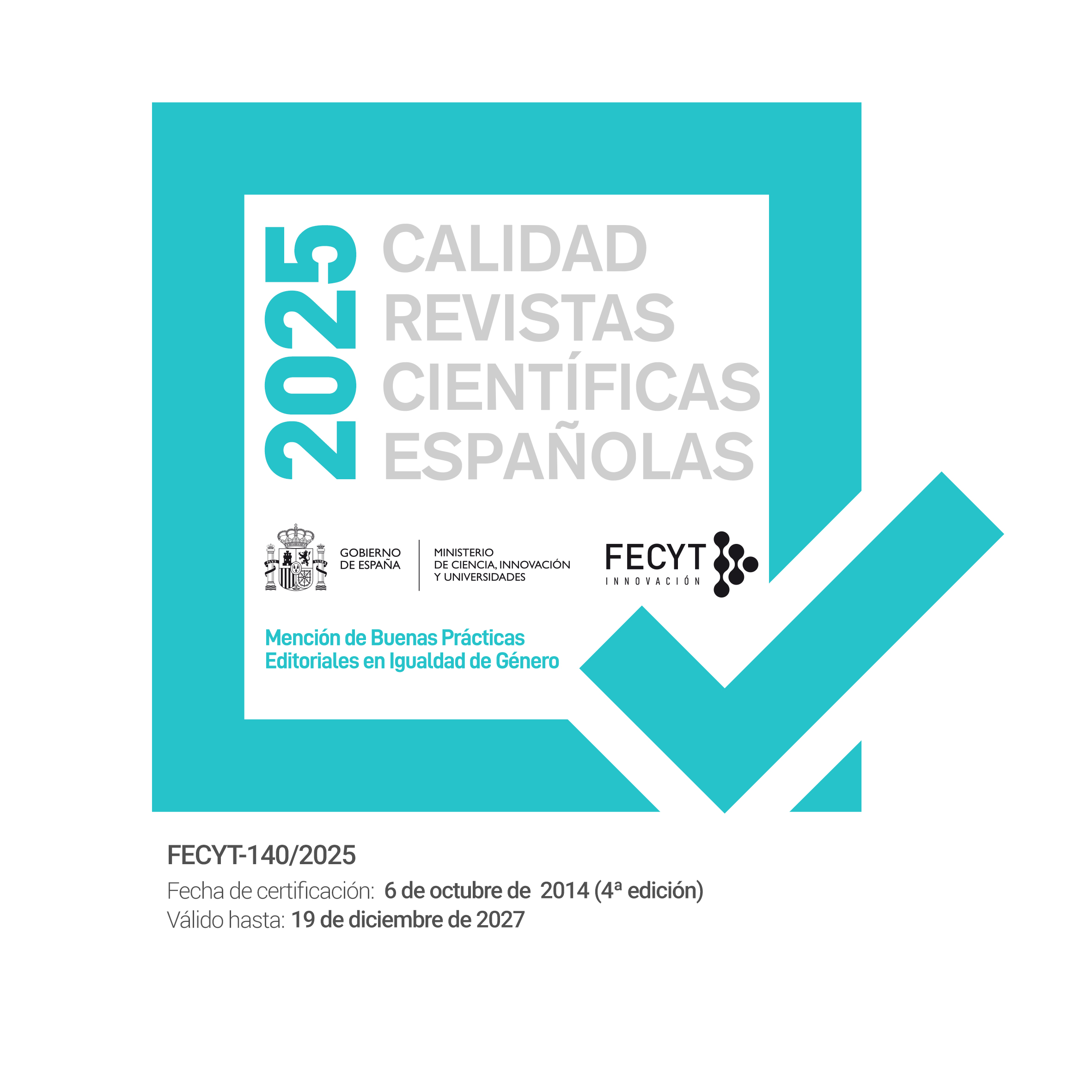Análisis del rendimiento académico y la salud mental de los alumnos de educación secundaria según el acceso a los recursos tecnológicos
DOI:
https://doi.org/10.5944/educxx1.31833Palabras clave:
éxito académico, bienestar, clúster, adolescentes, TIC, EspañaResumen
El acceso a los recursos digitales y el rendimiento académico (RA) son variables de gran interés en la sociedad actual. Sin embargo, hacen falta estudios que profundicen en la asociación entre ellos y la salud mental. Este estudio tiene como objetivo a) conocer si existen diferencias en el RA en función del acceso a los recursos digitales (móvil, ordenador, acceso a Internet y tiempo de conexión diario a Internet). b) Establecer perfiles de estudiantes según su RA y el acceso o no a dichos recursos digitales y, por último, analizar la relación de estos perfiles con la salud mental. Se seleccionó una muestra de 1448 alumnos españoles de Educación Secundaria Obligatoria (ESO) y de Bachillerato, de los que 708 eran hombres (48.90 %), con una edad media de 14.5 años (DT = 1.57). Se utilizó un cuestionario sociodemográfico, se midieron las calificaciones en el curso anterior y se utilizó la escala SDQ para la medición de la salud mental. El RA se ve influenciado positivamente por el tiempo de conexión a Internet, acceso al ordenador, Internet y móvil. Sin embargo, las diferencias entre los alumnos con buen RA y un RA bajo no vienen asociados exclusivamente al acceso a los recursos digitales sino a la presencia de dificultades en salud mental. Los alumnos con bajo RA presentan mayores dificultades emocionales, hiperactividad, problemas de conducta y problemas con compañeros. Por último, parece que los problemas emocionales destacan exclusivamente en aquellos alumnos con bajo RA que disponen de recursos digitales por lo que podría ser la variable más relevante para futuras intervenciones educativas.
Descargas
Citas
Agnafors, S., Barmark, M., & Sydsjö, G. (2020). Mental health and academic performance: a study on selection and causation effects from childhood to early adulthood. Social Psychiatry and Psychiatric Epidemiology, 23(2), 1–10. https://doi.org/10.1007/s00127-020-01934-5
Alderete, M.V., & Formichella, M.M. (2016). Efecto de las TIC en el rendimiento educativo: El programa conectar igualdad en la Argentina. Cepal Review, 1(119), 89–107. https://doi.org/10.18356/c7045fd1-es
APA (2017). Ethical Principles of Psychologists and Code of Conduct. https://bit.ly/3scny6f
Arora, T., Albahri, A., Omar, O.M., Sharara, A., & Taheri, S. (2018). The prospective association between electronic device use before bedtime and academic attainment in adolescents. Journal of Adolescent Health, 63(4), 451–458. https://doi.org/10.1016/j.jadohealth.2018.04.007
Atoum, M., Alhussami, M., & Rayan, A. (2018). Emotional and behavioral problems among Jordanian adolescents: Prevalence and associations with academic achievement. Journal of Child and Adolescent Psychiatric Nursing, 31(2–3), 70–78.
Botello, H.A., & López, A. (2014). La influencia de las TIC en el desempeño académico: Evidencia de la prueba PIRLS en Colombia. Revista Academia y Virtualidad, 7(2), 15-26. https://bit.ly/3upbxwq
Buzzai, C., Sorrenti, L., Orecchio, S., Marino, D., & Filippello, P. (2021). The relationship between contextual and dispositional variables, well-being and hopelessness in school context. Frontiers in Psychology, 11, 533815. https://doi.org/10.3389/fpsyg.2020.533815
Chen, Y., Mittal, V., & Sridhar, S. (2021). Investigating the academic performance and disciplinary consequences of school district internet access spending. Journal of Marketing Research, 58(1), 141-162. https://doi.org/10.1177/0022243720964130
Cid-Sillero, S., Pascual-Sagastizabal, E., & Martinez-de-Morentin, J.I. (2020). Influence of self-esteem and attention on the academic performance of ESO and FPB students. Revista de Psicodidáctica, 25(1), 59–67. https://doi.org/10.1016/j.psicod.2019.06.001
Coyne, S.M., Rogers, A.A., Zurcher, J.D., Stockdale, L., & Booth, M. (2020). Does time spent using social media impact mental health? An eight year longitudinal study. Computers in Human Behavior, 104(1), 25-39. https://doi.org/10.1016/j.chb.2019.106160
Dienlin, T., & Johannes, N. (2020). The impact of digital technology use on adolescent well-being. Dialogues in Clinical Neuroscience, 22(2), 135–142. https://doi.org/10.31887/DCNS.2020.22.2/tdienlin
Ernst, A.F., & Albers, C.J. (2017). Regression assumptions in clinical psychology research practice-a systematic review of common misconceptions. PeerJ, 5, 1–16. https://doi.org/10.7717/peerj.3323
Fajardo, F., Maestre, M., Felipe-Castaño, E., León, B., & Polo, M.I. (2017). Análisis del rendimiento académico de los alumnos de secundaria obligatoria según las variables familiares. Educación XXI, 20(1), 209–232. https://doi.org/10.5944/educXX1.17509
Fajardo-Bullón, F, Rasskin-Gutman, I., Felipe-Castaño, E., Dos Santos, E.J.R., & León-del Barco, B. (2017). Analysis of predictive factors on minors’ mental health according to the Spanish national health survey. Brain Sciences, 7(10). https://doi.org/10.3390/brainsci7100135
Fajardo-Bullon, F., Burguillo, B., León-Del-Barco, B., & Felipe-Castaño, E. (2019). Salud mental de adolescentes españoles según variables contextuales y horas de uso de Internet. Universitas Psychologica, 18(1), 1–12. https://doi.org/10.11144/Javeriana.upsy18-2.smae
Fajardo-Bullón, F., Rasskin-Gutman, I., León-Del Barco, B., Dos Santos, E.J.R., & Gallego, D.I. (2019). International and Spanish findings in scientific literature about minors’ mental health: Predictive factors using the strengths and difficulties questionnaire. International Journal of Environmental Research and Public Health, 16(9), 1–9. https://doi.org/10.3390/ijerph16091603
Fomento de Estudios Sociales y Sociología Aplicada (FOESSA) (2022). Evolución de la cohesión social y consecuencias de la Covid 19 en España. Colección de Estudios 50. Fomento de Estudios Sociales y de Sociología Aplicada. https://bit.ly/34h9zpn
García, S., & Cantón, I. (2019). Uso de tecnologías y rendimiento académico en estudiantes adolescentes. Comunicar: Revista Científica Iberoamericana de Comunicación y Educación, 59(27), 73-81. https://doi.org/10.3916/C59-2019-07
Giménez-Gualdo, A.M. Maquilón-Sánchez, J.J., & Arnaiz Sánchez, P. (2014). Acceso a las tecnologías, rendimiento académico y cyberbullying en escolares de secundaria. Revista Iberoamericana de Psicología y Salud, 5(2), 119–133. https://bit.ly/3pZday5
Gjoneska, B., Potenza, M.N., Jones, J., Corazza, O., Hall, N., Sales, C.M.D., Grünblat, E., Martinotti, G., Barkauskas, J., Werling, A. M., Walitza, S., Zohar, J., Menchón, J. M., Kiraly, O., Chamberlain, S. R., Fineberg, N. A., & Demetrovics, Z. (2022). Problematic use of the internet during the COVID-19 pandemic: Good practices and mental health recommendations. Comprehensive Psychiatry, 112, 152279. https://doi.org/10.1016/j.comppsych.2021.152279
Gómez-Gonzalvo, F., Devís-Devís, J., & Molina-Alventosa, P. (2020). Video game usage time in adolescents’ academic performance. Comunicar: Revista Científica Iberoamericana de Comunicación y Educación, 28(65), 89–99. https://doi.org/10.3916/C65-2020-08
Goodman, A., & Goodman, R. (2009). Strengths and difficulties questionnaire as a dimensional measure of child mental health. Journal of the American Academy of Child & Adolescent Psychiatry, 48(4), 400–403. https://doi.org/10.1097/CHI.0b013e3181985068
Goodman, R. (1997). The strengths and difficulties questionnaire: A research note. Journal of Child Psychology and Psychiatry and Allied Disciplines, 38(5), 581–586. https://doi.org/10.1111/j.1469-7610.1997.tb01545.x
Goodman, R., & Scott, S. (1999). Comparing the strengths and difficulties questionnaire and the child behavior checklist: Is small beautiful? Journal of Abnormal Child Psychology, 27(1), 17–24. https://doi.org/10.1023/A:1022658222914
Goodman, R., Renfrew, D., & Mullick, M. (2000). Predicting type of psychiatric disorder from Strengths and Difficulties Questionnaire (SDQ) scores in child mental health clinics in London and Dhaka. European Child and Adolescent Psychiatry, 9(2), 129–134. https://doi.org/10.1007/s007870050008
Guo, L., Shi, G., Du, X., Wang, W., Guo, Y., & Lu, C. (2021). Associations of emotional and behavioral problems with internet use among chinese young adults: The role of academic performance. Journal of Affective Disorders, 287, 214-221. https://doi.org/10.1016/j.jad.2021.03.050
Halpern, D., Piña, M., & Ortega-Gunckel, C. (2020). School performance: new multimedia resources versus traditional notes. [El rendimiento escolar: Nuevos recursos multimedia frente a los apuntes tradicionales]. Comunicar, 64, 39-48. https://doi.org/10.3916/C64-2020-04
Halpern, D., Piña, M., & Ortega-Gunckel, C. (2021). Mediación parental y escolar: uso de tecnologías para potenciar el rendimiento escolar. Educación XX1, 24(2). https://doi.org/10.5944/educXX1.28716
Hancox, R.J., Milne, B.J., & Poulton, R. (2005). Association of television viewing during childhood with poor educational achievement. Archives of Pediatrics and Adolescent Medicine, 159(7), 614–618. https://doi.org/10.1001/archpedi.159.7.614
Hurwitz, L.B., & Schmitt, K.L. (2020). Can children benefit from early internet exposure? Short- and long-term links between internet use, digital skill, and academic performance. Computers & Education, 146, 103750. https://doi.org/10.1016/j.compedu.2019.103750
Instituto Nacional de Estadística. (2019). Encuesta sobre Equipamiento y Uso de Tecnologías de Información y Comunicación en los Hogares. Nota de Prensa. https://bit.ly/3k639No
Islam, M.I., Biswas, R.K., & Khanam, R. (2020). Effect of internet use and electronic game-play on academic performance of Australian children. Scientific Reports, 10(1), 21727. https://doi.org/10.1038/s41598-020-78916-9
Javaeed, A., Jeelani, R., Gulab, S., & Ghauri, S.K. (2020). Relationship between internet addiction and academic performance of undergraduate medical students of Azad Kashmir. Pakistan Journal of Medical Sciences, 36(2), 229-233. https://doi.org/10.12669/pjms.36.2.1061
Lee, Y.J., Park, J., Kim, S., Cho, S.J., & Kim, S.J. (2015). Academic performance among adolescents with behaviorally induced insufficient sleep syndrome. Journal Clinical Sleep Medical, 11(1), 61-68. https://doi.org/10.5664/jcsm.4368
Lereya, S.T., Patel, M., dos Santos, J.P.G.A., & Deighton, J. (2019). Mental health difficulties, attainment and attendance: a cross-sectional study. European Child and Adolescent Psychiatry, 28(8), 1147–1152. https://doi.org/10.1007/s00787-018-01273-6
Ley Orgánica 8/2013, de 9 de diciembre, para la mejora de la calidad educativa. Boletín oficial del Estado, 295 de 10 de diciembre de 2013. 27548-27562. https://bit.ly/3HxuoeE
Ludyga, S., Brand, S., Gerber, M., & Pühse, U. (2017). Exercise as neuroenhancer in children with ADHD Cognitive and behavioural effects. Physical Activity and Educational Achievement: Insights from Exercise Neuroscience, 1(1), 191-21. https://bit.ly/3bscRpB
Madigan, S., Browne, D., Racine, N., Mori, C., & Tough, S. (2019). Association between screen time and children’s performance on a developmental screening test. JAMA Pediatrics, 173(3), 244–250. https://doi.org/10.1001/jamapediatrics.2018.5056
Maqableh, M., Jaradat, M., & Azzam, A. (2021). Exploring the determinants of students’ academic performance at university level: The mediating role of internet usage continuance intention. Education and Information Technologies, 26(4), 4003-4025. https://doi.org/10.1007/s10639-021-10453-y
Martínez-Garrido, C. (2018). Impacto del uso de los recursos tecnológicos en el rendimiento académico. Innoeduca. International Journal of Technology and Educational Innovation, 4(2), 138–149. https://doi.org/10.24310/innoeduca.2018.v4i2.4956
Martín-Perpiñá, M.M., Viñas, F., & Malo, S. (2019). Media multitasking impact in homework, executive function and academic performance in Spanish adolescents. Psicothema, 31(1), 81-87. https://doi.org/10.7334/psicothema2018.178
Miao, T., Gu, C., Liu, S., & Zhou, Z.K. (2020). Internet literacy and academic achievement among chinese adolescent: A moderated mediation model. Behaviour & Information Technology, 1-13. https://doi.org/10.1080/0144929X.2020.1831074
Ministerio de Sanidad (2021). Estrategia de salud mental del sistema nacional de salud. Periodo 2021-2026. Gobierno de España.
Ministerio de Sanidad, Consumo y Bienestar Social (2017). Encuesta Nacional de Salud de España 2017 (ENSE 2017). Secretaría general técnica centro de publicaciones. https://bit.ly/3rwuwCE
Navas, L., Sampascual, G., & Santed, M.A. (2003). Predicción de las calificaciones de los estudiantes: La capacidad explicativa de la inteligencia general y de la motivación. Revista de psicología general y aplicada: Revista de la Federación de Asociaciones en psicología, 56, 225-237. https://bit.ly/3sgzRzY
Organización Mundial de la Salud (2022) (OMS, 2022). Mental health: strengthening our response. https://bit.ly/3J4AiED
Organización para la Cooperación y el Desarrollo Económico (2002) (OCDE, 2002). Perspectivas sobre las tecnologías de la información. https://bit.ly/3ATR1Y6
Ortuño, J. (2016) Fonseca-Pedrero, E., Inchausti, F., & Sastre, S. (2016). Evaluación de dificultades emocionales y comportamentales en población infanto-juvenil: el cuestionario de capacidades y dificultades (SDQ). Papeles del Psicólogo, 37(1), 14-26. https://bit.ly/3ur3y4a
Ortuño-Sierra, J., Aritio-Solana, R.., & Fonseca-Pedrero, E. (2018) Mental health difficulties in children and adolescents: The study of the SDQ in the Spanish National Health Survey 2011–2012. Psychiatry Research, 259, 236–242. https://doi.org/10.1016/j.psychres.2017.10.025
Ortuño-Sierra, J., Fonseca-Pedrero, E., Paíno, M., & Aritio-Solana, R. (2014). Prevalence of emotional and behavioral symptomatology in Spanish adolescents. Revista de Psiquiatría y Salud Mental (English Edition), 7(3), 121-130. https://doi.org/10.1016/j.rpsmen.2014.06.002
Osgood, K., Sheldon-Dean, H., & Kimball, H. (2021). Children’s Mental Health Report: What we know about the COVID-19 pandemic’s impact on children’s mental health – and what we don’t know. Child Mind Institute. https://bit.ly/3sXrSIN
Ozaslan, A., Yildirim, M., Guney, E., Guzel, H.S., & Iseri, E. (2021). Association between problematic internet use, quality of parent-adolescents relationship, conflicts, and mental health problems. International Journal of Mental Health and Addiction. https://doi.org/10.1007/s11469-021-00529-8
Palacios, S. (2005) Variables psicodidácticas de las nuevas tecnologías. Revista de Psicodidáctica. 10(2), 81-96. https://bit.ly/3skQ3P5
Pek, J., Wong, O., & Wong, A.C.M. (2018). How to address non-normality: A taxonomy of approaches, reviewed, and illustrated. Frontiers in Psychology, 9(NOV), 1–17. https://doi.org/10.3389/fpsyg.2018.02104
Putnam, T.C. (2021). Associations between screen time, perceived stress, and academic performance. Research Quarterly for Exercise and Sport, 92, A100-A101.
Ramírez-Castañeda, L.A., & Sepulveda-López, J.J. (2018). Brecha digital e inclusión digital: fenómenos socio – tecnológicos. Revista EIA, 15(30), 1-11. https://doi.org/10.24050/reia.v15i30.1152
Real Decreto 1105/2014, de 26 de diciembre, por el que se establece el currículo básico de la Educación Secundaria Obligatoria y del Bachillerato. Boletín Oficial del Estado, 3, de 03 de enero de 2015, A-2015-37. https://bit.ly/3IXQOG9
Rosen, L.D., Carrier, L.M., & Cheever, N.A. (2013). Facebook and texting made me do it: Media-induced task-switching while studying. Computers in Human Behavior, 29(3), 948-958. https://doi.org/10.1016/j.chb.2012.12.001
Rothenberg, A., Becker, A., Erhart, M., Wille, N., & Ravens-Sieberer, U. (2008). Psychometric properties of the parent strengths and difficulties questionnaire in the general population of German children and adolescents: results of the BELLA study. European Child & Adolescent Psychiatry, 17, 99-105. https://doi.org/10.1007/s00787-008-1011-2
Rubio-Hurtado, M.J., & Vilà-baños, R. (2017). El análisis de conglomerados bietápico o en dos fases con SPSS. REIRE. Revista d’Innovació i Recerca en Educació, 10(1), 118–126. https://doi.org/10.1344/reire2017.10.11017
Save the Children (2021). Crecer saludablemente. Un análisis sobre la salud mental y el suicidio. España. https://bit.ly/3sdxRIX
Savkina, T.O., & Slobodskaya, H.R. (2010). Internet use and mental health in Russian adolescents. The Siberian Scientific Medical Journal, 30(6), 29-34.
Sornarajah, V. (2021). Child and adolescent wellbeing during covid-19 pandemic consider internet use when assessing young people’s mental health. Bmj-British Medical Journal, 374, n2324. https://doi.org/10.1136/bmj.n2324
Strom, I.F., Thoresen, S. Wentzel-Larsen, T., & Dyb, G. (2013). Violence, bullying and academic achievement: A study of 15-year-old adolescents and their school environment. Child Abuse & Neglect, 37(4), 243-251. https://doi.org/10.1016/j.chiabu.2012.10.010
Tereshchenko, S., Semenova, N., Evert, L., Shubina, M., Gorbacheva, N., & Zaytseva, O. (2021). Pathological internet use and psychosocial problems defined by strengths and difficulties questionnaire assessment among Siberian adolescents. Journal of Developmental and Behavioral Pediatrics, 42(2), S15-S15. https://bit.ly/3L4TALK
Tripodaki, E., Kormas, G., Konstantoulaki, E., Andrie, E., Nassis, G., Freskou, A., Sfiri, M., Georgouli, H., Tsitsika, A., & Constantopoulos, A. (2008). Internet use and abuse in an adolescent population in Athens: Associations with psychological profile and lifestyle of users. Pediatrics, 121, S89-S90. https://doi.org/10.1542/peds.2007-2022D
Veas, A., Castejón, J.L., Miñano, P., & Gilar-Corbí, R. (2019). Early adolescents’ attitudes and academic achievement: The mediating role of academic self-concept. Revista de Psicodidáctica, 24(1), 71-77. https://doi.org/10.1016/j.psicod.2018.11.001
Vitale, R., Degoy, E., & Berra, S.D.V. (2015). Salud percibida y rendimiento académico en adolescentes de escuelas públicas de la ciudad de Córdoba. https://bit.ly/3cUNU8s
World Health Organization (2019). The WHO special initiative for mental health (2019-2023): Universal health coverage for mental health. World Health Organization. https://bit.ly/3ro1OGV
Yan, H., Zhang, R., Oniffrey, T.M., Chen, G., Wang, Y., Wu, Y., Zhang, X., Wang, Q., Ma, L., Li, R., & Moore, J.B. (2017). Associations among screen time and unhealthy behaviors, academic performance, and well-being in Chinese adolescents. International Journal of Environmental Research and Public Health, 14(6), 596. https://doi.org/10.3390/ijerph14060596
Zhu, J., & Mok, M.M.C. (2020). Predictors of students’ participation in internet or computer tutoring for additional instruction and its effect on academic achievement. Journal of Computer Assisted Learning, 36(5), 729-740. https://doi.org/10.1111/jcal.12440

Descargas
Publicado
Cómo citar
Número
Sección
Licencia
Derechos de autor 2022 María Ángeles García-Gil, Fernando Fajardo-Bullón, Elena Felipe-Castaño

Esta obra está bajo una licencia internacional Creative Commons Atribución-NoComercial 4.0.
La revista Educación XX1 se publica bajo licencia Creative Commons Reconocimiento-NoComerciaL 4.0 (CC BY-NC 4.0). Se permite la generación de obras derivadas siempre que no se haga un uso comercial. Tampoco se puede utilizar la obra original con finalidades comerciales.










